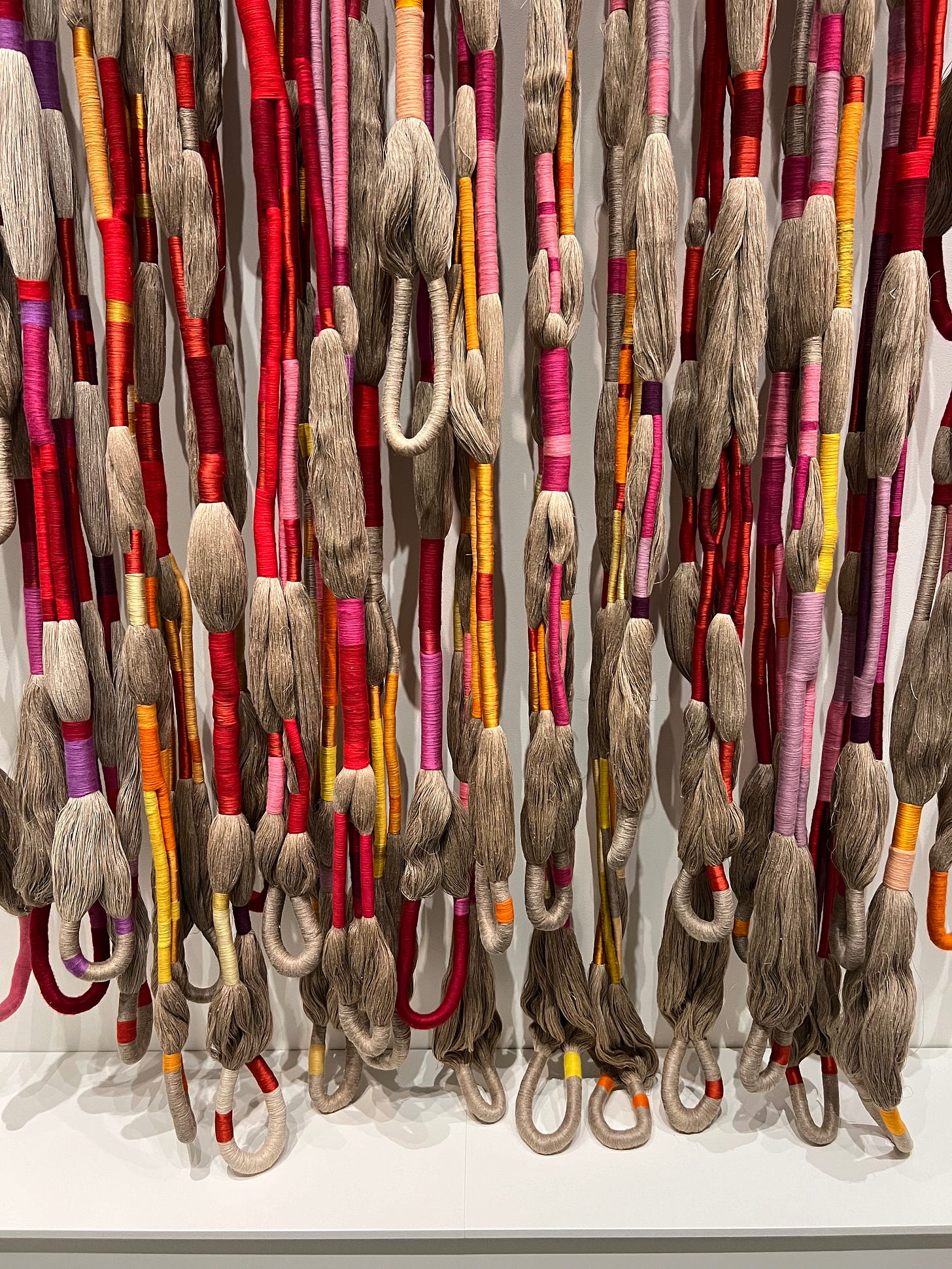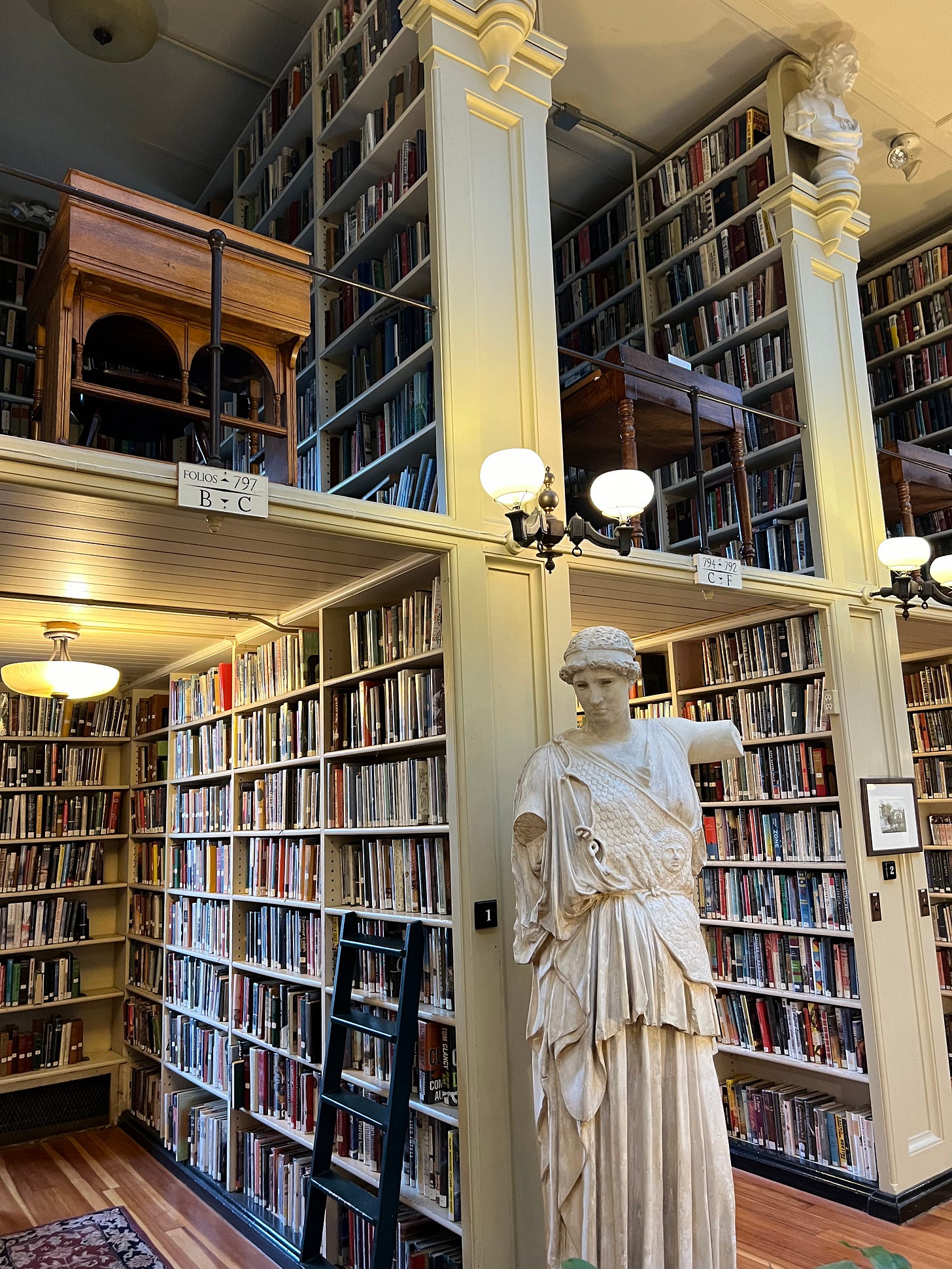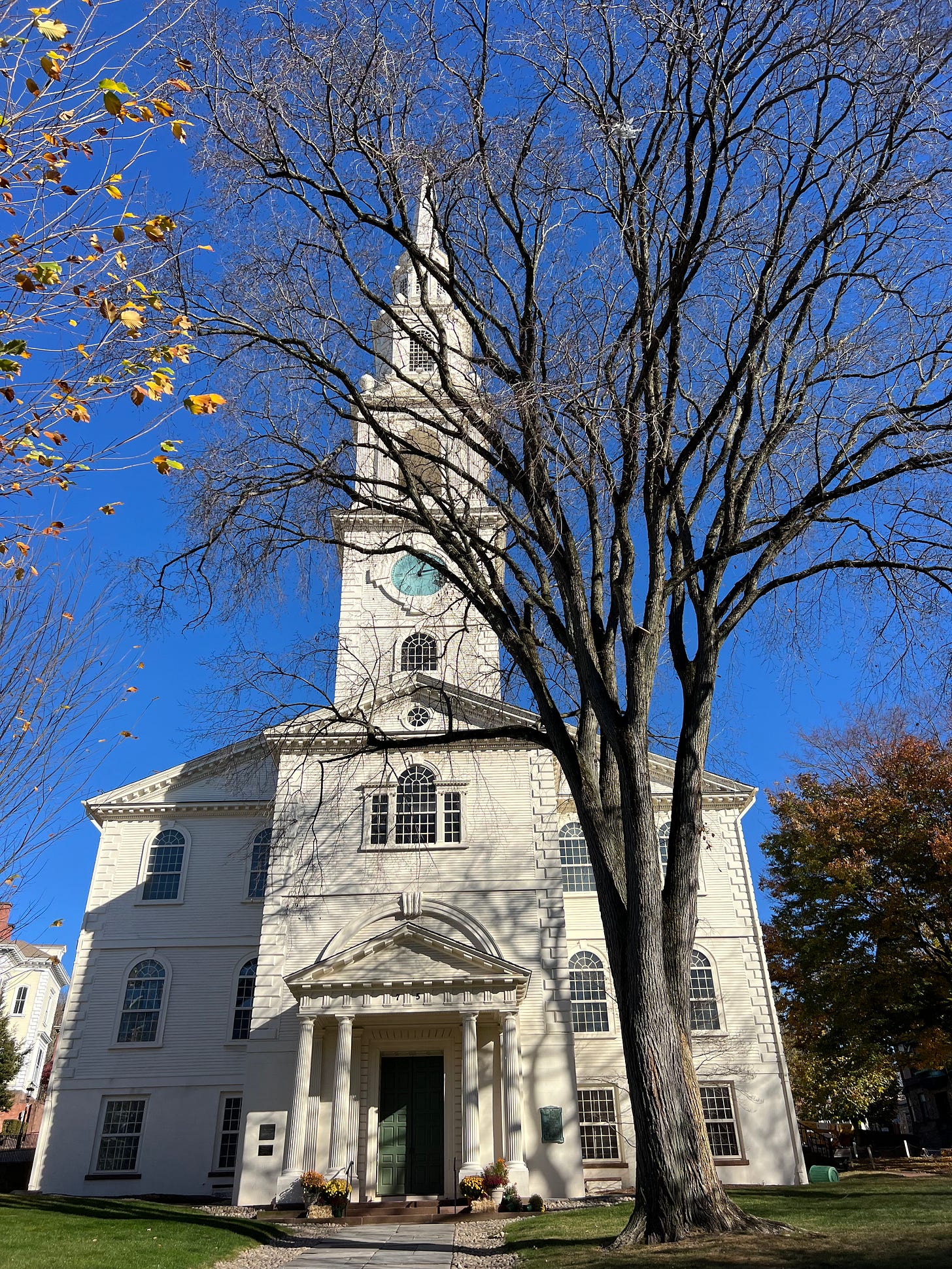Postcards from Providence
Providence: timely preparation for future eventualities, divine guidance and care

Hello friends,
I hope you are well, embracing your people and your passions. I’m slow to collect and organize my thoughts right now, let alone share them. I have written and erased many, many sentences.
So I’d like to share some reflections from a recent trip to Providence, Rhode Island, where I spent about five days for work and pleasure. I had never been before and my personal proclivity for wandering was rewarded in the dense little old city of about 190,000 people. The fogged-up windshield of my brain cleared as I stumbled over cobblestones and into museums, shops, cafes, and library after library. I remembered with a welcome joy, again, that every place has a complicated, layered history that is largely unknown to anyone who does not call that place home. And history is both interesting and relevant.
On the first day after I checked into the hotel, I went for a walk along the Moshassuck River. A historical marker told me Moshassuck meant “The place where the moose watered.” I did not see any moose, but the local pride/tourist kitsch further explained that this place now exists in the center of “mobster” and “lobster.”
Providence means divine guidance and care.
The colonial settlement was named "Providence Plantations" and established as a refuge for religious dissenters at the confluence of the Moshassuck and the Woonasquatucket rivers. I heard King Phillip’s War mentioned several times during my five days in Providence, but I did not grow up on the East Coast. The reference meant nothing to me.
Also called the First Indian War, the internet tells me it was the “deadliest” conflict in Colonial America against the indigenous people of the Northeastern Woodlands. Providence town was burned to the ground during this conflict (1675-76), along with eleven other towns. The economy of the Plymouth and Rhode Island Colonies was ruined and the population of the region was decimated.
Wikipedia says: “King Philip's War began the development of an independent American identity. The New England colonists faced their enemies without support from any European government or military, and this began to give them a group identity separate and distinct from Britain.” I’m not sure when identity politics shifted toward mobsters and lobsters — maybe another time, a local can explain that piece of the independent American psyche.
Also: “Afterwards, hundreds of Wampanoags and their allies were publicly executed or enslaved, and the Wampanoags were left effectively landless.”
The Providence Athenæum
A sign saying “Public Welcome” hangs outside an imposing building with grand pillars. A staircase winds up a full story from street level to the wooden doors. I took the impromptu invitation and found myself in one of the oldest libraries in the United States. The Athenæum is a membership library, which was how libraries existed before tax support. The website explains that early “libraries were organized either privately as stock companies (in which the purchase of a share made one an owner) or as an association of dues-paying members. When sufficient funds had been raised, these libraries rented or erected buildings, purchased books, and paid their librarians with the proceeds from dues, annual share assessments, or rental fees.”
The Providence Athenæum feels special the instant you walk through the doors. I didn’t stay long, but if I lived anywhere in tiny Rhode Island, I’d become a member and find opportunities to sit at those sweet wooden study desks.
No, it’s not the oldest library ever. The earliest known libraries were in current-day Iraq, Egypt, Turkey and Italy. They were destroyed by things like the eruption of Mount Vesuvius or a fire started by Julius Caesar. But what a joy it was to wander into such a lovely example of human invention: a library.
First Baptist Church in America
Walking new streets with curiosity and a camera never fails to delight me. I took a few pictures of this cute church before I knew what it was. And then toward the end of my visit I had reason to go inside for an event as part of the National Humanities Conference. We were welcomed by the Rev. Dr. Jamie Washam. She asked us to notice, first, the complete lack of any religious iconography — no cross, no images of Christ or God, no references to anything at all. Turns out the guy who founded Providence, Roger Williams, gathered the First Baptist Church in America in 1638 and it continues to be a very vibrant, outspoken ministry. Rev. Washam shared the beliefs of Williams, principles of soul freedom, religious liberty, and the importance of a separation between church and government. One thing the modern church is know for is their signs.
Life is Fine
Since 1995, Rhode Islanders have come together each February to read and celebrate the life of one of America's most celebrated poets and writers, Langston Hughes (1902-1967). The public event has received funding from the National Endowment for the Humanities, so at the National Humanities Conference, we were treated to a jazzy performance of some of Hughes’ poems, including Life is Fine.
I went down to the river,
I set down on the bank.
I tried to think but couldn't,
So I jumped in and sank.
I came up once and hollered!
I came up twice and cried!
If that water hadn't a-been so cold
I might've sunk and died.
But it was Cold in that water! It was cold!
I took the elevator
Sixteen floors above the ground.
I thought about my baby
And thought I would jump down.
I stood there and I hollered!
I stood there and I cried!
If it hadn't a-been so high
I might've jumped and died.
But it was High up there! It was high!
So since I'm still here livin',
I guess I will live on.
I could've died for love—
But for livin' I was born
Though you may hear me holler,
And you may see me cry—
I'll be dogged, sweet baby,
If you gonna see me die.
Life is fine! Fine as wine! Life is fine!
From The Collected Poems of Langston Hughes, published by Alfred A. Knopf, Inc. Copyright © 1994 the Estate of Langston Hughes. Shared from the Academy of American Poets website.
Thanks for reading and for wandering along with me. Please take a moment to leave a comment, click the heart, and share.
hugs,







Nice comments on a nice break from... I like the pictures of the library and of the church. You have a great eye.
So glad you had a great time in Providence, Jessica. The college Hill area, where you found Rhode Island School of Design, is my favorite. The architecture is incredibly well preserved. They don’t build them like they used to that’s for sure!